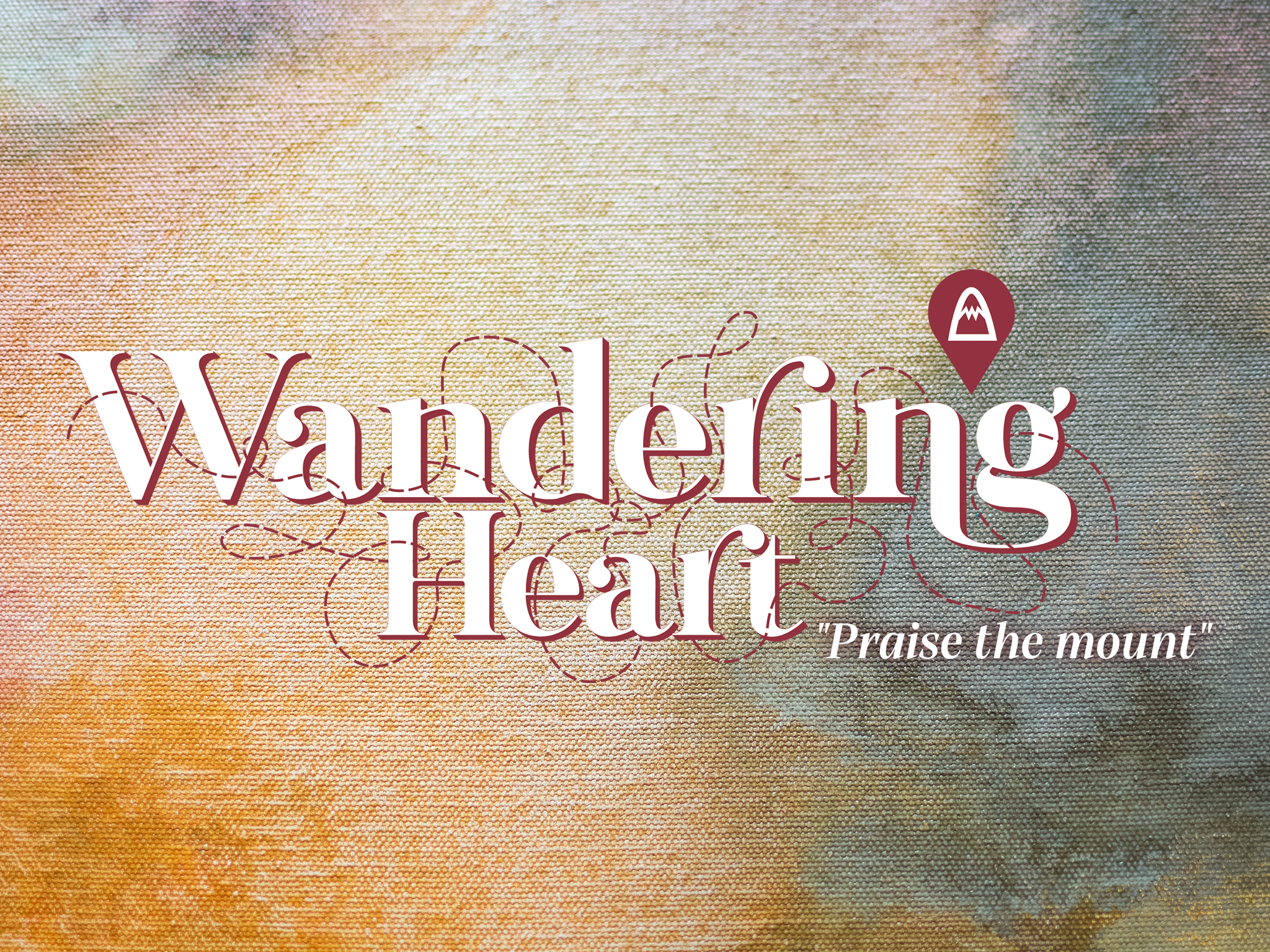A reflection on Proverbs 9:1–6; 1 Kings 2:10–12, 3:3–13; Psalm 111; Ephesians 5:15–20
Walk in the Way of Wisdom
Proverbs 9:1–6
Wisdom has built her house,
fashioned seven pillars for completeness;
painted walls and window frames,
hung art and curtains and ferns in baskets.She has gathered fresh produce,
roots from the earth, fruit from the trees,
baked bread, fermented wine,
set the table, placed the chairs.She has sent out the invitation,
sent the call through the town:
call the ordinary, call the humble,
call the innocent: turn this way!Come and eat my bread,
come and drink my wine;
put aside immaturity, and live!
Truly live, and walk in the Way
of insight, of light, of Wisdom!(Sarah Agnew)
Whose wisdom?
Wisdom. Is it a rule book, a set of instructions you tick off, done that, done that, I’m set?
Or is ‘guidance’ more like signposts or lifesavers’ flags: guidelines within which is room to move, the dignity of human autonomy, self expression, learning, growing, mutuality, and relationship?
The question our story and letter pose to us today is also: whose wisdom?
We didn’t hear the whole story today, of the early chapter of Solomon’s succession to his father, David. David hands over the kingdom to Solomon. As he does, David is aware of threats to a stable reign for Solomon, from David’s enemies, from others with claims or aspirations to the throne. David advises Solomon to bring down certain ‘grey heads with blood to Sheol’ (1 Kgs 2:6, 9). To kill Joab who had murdered commanders of the army of Israel, and Shimei, who cursed David. The story continues with Solomon taking those lives, and ‘so, the kingdom was established in the hand of Solomon’ (2:46b)
Solomon then marries an Egyptian, contrary to Torah, and worships God with the people in high places connected to non-Israelite cultic practice, because the Temple still has not been built (3:1–3).
Then, Solomon encounters God in a dream, and asks for the gift of wisdom with which to lead God’s people.

If we were to consider only the story of the dream, it paints a particular picture.
There’s a purity to Solomon and his ‘wisdom’, without the story of the ‘wisdom’ he has employed before now; without the story of his ‘wise’ or cunning or shrewd removal of the threats his father identified.
If all we hear is Solomon asked God for wisdom, we only point to the mythology that surrounds Solomon as an icon of wisdom.
Yet, when we hear the fuller story, we see Solomon acting with human ‘wisdom’ to protect his power – and do recall our recent discussions of ‘power’ and its propensity to corrupt. Hearing the fuller story, we hear in Solomon’s request perhaps a confession that so far, he has not acted with the wisdom of Holy One. That he has not ‘led your people’, but only served himself, in the early days of his reign.
By hearing the scenes leading into the dream encounter with God, we see that Solomon in his request for wisdom is choosing the better man his father sometimes managed to be, shedding the legacy of human folly for the Way of Wisdom.
And in the very act of turning to that way, God’s way, Solomon is already embracing the gift he seeks from God.
Give your servant an understanding mind to govern your people, able to discern between good and evil.
Wisdom is about relationship, our human being together, not my power over you.
Strict application
Turning to the letter to the Ephesians, and again, hearing only those five isolated verses, we hear a lovely exhortation to live wisely and worship God together with joy.
The context of these verses at the close of the preceding discussion is far more jarring.
Eph 5:3 – there must not be even a hint of immorality, impurity, greed
Eph 5:1 – be imitators of God
Eph 5:3 – immorality, impurity, greed are improper for God’s holy people
This is an uncompromising moral code. And there is a reason for that.
This letter is later than those we are confident the apostle Paul composed. Yes, some do assert that Paul wrote this one, too. But I think it does move away from some core ideas Paul sticks to throughout his letters.
In particular, in the discussion leading to the climactic call to worship that we heard today, the letter writer distinguishes the Christ-following community from Gentiles as non-believers. Paul speaks of Gentiles as part of the community of Christ-followers, as he also speaks of Jews. The identity of the community of Christ-followers is changing, becoming distinct from both Jews and Gentiles.
The strict moral code we find in the first part of Chapter 5 holds Christ-followers to a high standard – no immoral, impure, or greedy person has a place in the realm of God (5:5). Light and dark are polar opposites; good and bad are white and black and people are in or out.
Whereas Jesus, the Hebrew Bible prophets, Paul, God are consistently opening the boundaries between us and them, the church in Ephesus is being directed to close theirs.

Is this a natural development of identity? Growth theory suggests a person or group must have tight boundaries around an idea, or themselves, when newly formed, the delineating who we are not an important part of the process of coming to understand who we are. Stating what we do not believe part of the process of confirming what we do believe.
Growth theory also observes that maturity develops as confidence in a new identity or idea grows, and the strong boundaries can be loosened. Once it is established, we can relate with others unlike us without fear that our identity will be threatened, undermined; that our ideas will be challenged and changed. or, without fear of that change as diminishing our integrity and uniqueness, but part of continuing growth to truly live.
Which sounds like Wisdom’s way to me, no?

What we may have in Ephesians is a retreat into self-serving, or perhaps more generously, self-preserving wisdom. A little more fear than confidence, in uncertain times beginning to stake a claim for a unique identity as Christians who are not Jews nor Gentiles. These believers are a distinct group believing in Jesus the Christ as God incarnate.
Those in this group of non-Jewish origins are not Gentiles anymore, because they are believers. Those of Jewish origins are not Jews anymore, because their faith has become distinctly other.
In this era of formation of the group’s identity, the teaching must close somewhat, tighten a little, to sure up the boundaries, the lines of distinction between us and them.
So,
Be very careful how you live
Be wise – that is the Way of Christ, of God
do not be unwise – that is the way of evil
fill your heart with God and what is of God
so that your speech is Godly, holy, Spirited
In everything, define yourself as of this community of Christ-followers, not any of those other groups around us.
When the letter writer thus exhorts the Ephesian Christians to be wise, it is in order to truly live, according to the Way of Christ which distinguishes their group from the rest of the world.
When Wisdom calls the humble and innocent, it is to her Way, God’s Way. She is inviting them to truly live.
When Solomon asks God for wisdom, it is a choice for the best of what he inherited from and knew of his father. It is a choice for the Way of God, the Way to truly live.
Wisdom and us
Our Church Council has received the initial feedback from our mission planning day. Remember we have said all along that this will be a lengthy process, if it is to lead us through life-giving change. We are discerning who we are now: what is our identity as the people of God who gather to worship at Wesley Uniting, Forrest. We are asking, how do we choose wisdom, God’s wisdom, so as to truly live here, now, together?

Church Council and Elders are forming a small group with the ministers to consider deeply Cameron’s feedback, and engage in some initial conversation with him if we identify gaps, or misrepresentations in his reflecting back to us who we are saying we are and want to be.
There will be further consultation with the congregation, as we continue to discern what wisdom’s guidelines look like for us, within which to live our diversity as a united, thriving, dynamic, community?
Perhaps this is our request to God for wisdom. Our response to Lady Wisdom’s invitation. Our redefining of the markers of our identity, with a similar purpose to that church in Ephesus:
to unify a community around shared identity – the people of Christ
to encourage a community in living a shared way of life – the Way of Wisdom
to invite a community to delight in each other and together in God – singing God’s song in our hearts
We stand in awe
Psalm 111
Praise Holy One!
My whole heart bursts
with thanks and praise,
my heart joined with the heart
of the family of Holy One.We delight together
in the works of the Divine;
we see the beauty, the honour!
The splendour of Holy One
endures forever!We see the mercy, receive the grace,
and tell of it all throughout the world.
We eat the food Holy One provides,
we treasure the promises kept by the Divine.We trust in the promises,
the hands that are faithful and just;
we treasure the teaching of Wisdom,
which leads us to life fulfilled.We praise the Name, the Holy Name,
though we cannot speak it and live.
We stand in awe of Holy One,
and find the beginning of wisdom.We practice, we trust, we seek Holy One,
and we join in the song of praise
that will never end.
Praise Holy One!
Amen.(Sarah Agnew, http://praythestory.blogspot.com)




Leave A Comment